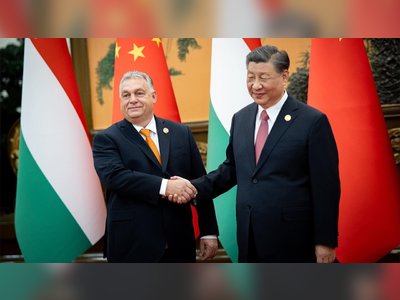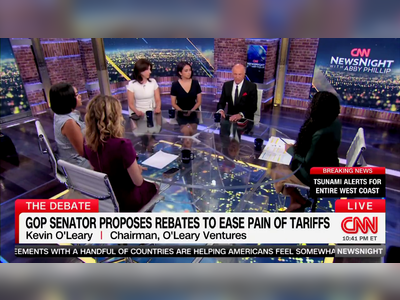The Compass of Time: Unraveling the 2024 Person of the Year
Every year, TIME’s Person of the Year captures a snapshot of people whose actions have resonated worldwide, shaping the social, political, and economic scenery. As 2024 ends, the candidates for this prestigious title represent a diverse array of change.
Among these figures, Kamala Harris, Joe Rogan, Yulia Navalnaya, Elon Musk, along with stalwarts like Trump and Netanyahu, are particularly noteworthy.
Each individual represents a unique aspect of the global narrative.
Kamala Harris made notable progress with her presidential campaign, symbolizing a vision of advancement as she pursued the goal of becoming the first female president of the United States.
Despite not defeating Donald Trump, Harris's campaign earned significant attention.
It highlights persistent challenges in U.S. politics while also emphasizing her potential for future leadership.
Her determination remains a symbol of hope for those championing gender equality in leadership roles.
In contrast, Elon Musk’s influence in 2024 signifies a more disruptive force.
Musk's transformation of “X” (formerly Twitter) and his political maneuvers alongside Trump have thrust him into the spotlight, extending his influence beyond economic spheres.
Musk’s relentless ambition to reshape digital landscapes ensures he remains a prominent figure in current affairs, guiding discussions on free speech and technology.
Yulia Navalnaya epitomizes another dimension of influence, serving as a symbol of resilience against authoritarianism.
With quiet tenacity, she continues the movement against Russia's entrenched political system, following her husband Alexei Navalny’s legacy.
Navalnaya’s bravery in challenging the Kremlin’s power structure, while garnering global support, illustrates diplomatic strength often missing in louder global narratives.
Meanwhile, Benjamin Netanyahu’s tactics in the Israel-Palestine conflict have positioned him at the heart of regional dynamics.
His controversial decisions continue to divide global opinion but unavoidably shape Middle Eastern geopolitics.
Netanyahu represents a leader who reshapes the future, though amid intense debates over ethics and humanitarian cost.
Elsewhere, Claudia Sheinbaum’s leadership as Mexico’s first female president establishes her as a new force in Latin American politics.
Facing economic challenges and rising violence, Sheinbaum's presidency signifies a shift towards greater gender representation in power, while she remains vigilant in protecting Mexico’s independence against international pressures.
In the field of cultural discourse, Joe Rogan’s impact is significant.
His podcast provides a platform that influences public opinion on a global scale.
Rogan skillfully blends political commentary with entertainment in a way that resonates with diverse audiences, shaping cultural dialogues and potentially impacting electoral choices.
As always, Donald Trump remains a significant force in global politics.
His return to the 2024 political scene continues to disrupt conventional narratives, promoting nationalist agendas that challenge the global order.
His path reflects the persistent appeal of populism, further complicating the modern American political landscape.
Finally, Mark Zuckerberg’s role as Meta's CEO highlights the ongoing tension between digital innovation and ethical governance.
As concerns about misinformation grow, Zuckerberg’s actions resonate through policy debates on social media’s role in society.
Thus, the 2024 Person of the Year is not just a title but a lens for viewing global changes.
It emphasizes those who influence society’s direction through innovation, autocracy, resilience, or discourse.
Identifying who holds the greatest influence in 2024 is complex and often subjective, revealing that influence is as much about paving future paths as it is about setting the current agenda.
Each individual represents a unique aspect of the global narrative.
Kamala Harris made notable progress with her presidential campaign, symbolizing a vision of advancement as she pursued the goal of becoming the first female president of the United States.
Despite not defeating Donald Trump, Harris's campaign earned significant attention.
It highlights persistent challenges in U.S. politics while also emphasizing her potential for future leadership.
Her determination remains a symbol of hope for those championing gender equality in leadership roles.
In contrast, Elon Musk’s influence in 2024 signifies a more disruptive force.
Musk's transformation of “X” (formerly Twitter) and his political maneuvers alongside Trump have thrust him into the spotlight, extending his influence beyond economic spheres.
Musk’s relentless ambition to reshape digital landscapes ensures he remains a prominent figure in current affairs, guiding discussions on free speech and technology.
Yulia Navalnaya epitomizes another dimension of influence, serving as a symbol of resilience against authoritarianism.
With quiet tenacity, she continues the movement against Russia's entrenched political system, following her husband Alexei Navalny’s legacy.
Navalnaya’s bravery in challenging the Kremlin’s power structure, while garnering global support, illustrates diplomatic strength often missing in louder global narratives.
Meanwhile, Benjamin Netanyahu’s tactics in the Israel-Palestine conflict have positioned him at the heart of regional dynamics.
His controversial decisions continue to divide global opinion but unavoidably shape Middle Eastern geopolitics.
Netanyahu represents a leader who reshapes the future, though amid intense debates over ethics and humanitarian cost.
Elsewhere, Claudia Sheinbaum’s leadership as Mexico’s first female president establishes her as a new force in Latin American politics.
Facing economic challenges and rising violence, Sheinbaum's presidency signifies a shift towards greater gender representation in power, while she remains vigilant in protecting Mexico’s independence against international pressures.
In the field of cultural discourse, Joe Rogan’s impact is significant.
His podcast provides a platform that influences public opinion on a global scale.
Rogan skillfully blends political commentary with entertainment in a way that resonates with diverse audiences, shaping cultural dialogues and potentially impacting electoral choices.
As always, Donald Trump remains a significant force in global politics.
His return to the 2024 political scene continues to disrupt conventional narratives, promoting nationalist agendas that challenge the global order.
His path reflects the persistent appeal of populism, further complicating the modern American political landscape.
Finally, Mark Zuckerberg’s role as Meta's CEO highlights the ongoing tension between digital innovation and ethical governance.
As concerns about misinformation grow, Zuckerberg’s actions resonate through policy debates on social media’s role in society.
Thus, the 2024 Person of the Year is not just a title but a lens for viewing global changes.
It emphasizes those who influence society’s direction through innovation, autocracy, resilience, or discourse.
Identifying who holds the greatest influence in 2024 is complex and often subjective, revealing that influence is as much about paving future paths as it is about setting the current agenda.
AI Disclaimer: An advanced artificial intelligence (AI) system generated the content of this page on its own. This innovative technology conducts extensive research from a variety of reliable sources, performs rigorous fact-checking and verification, cleans up and balances biased or manipulated content, and presents a minimal factual summary that is just enough yet essential for you to function as an informed and educated citizen. Please keep in mind, however, that this system is an evolving technology, and as a result, the article may contain accidental inaccuracies or errors. We urge you to help us improve our site by reporting any inaccuracies you find using the "Contact Us" link at the bottom of this page. Your helpful feedback helps us improve our system and deliver more precise content. When you find an article of interest here, please look for the full and extensive coverage of this topic in traditional news sources, as they are written by professional journalists that we try to support, not replace. We appreciate your understanding and assistance.










